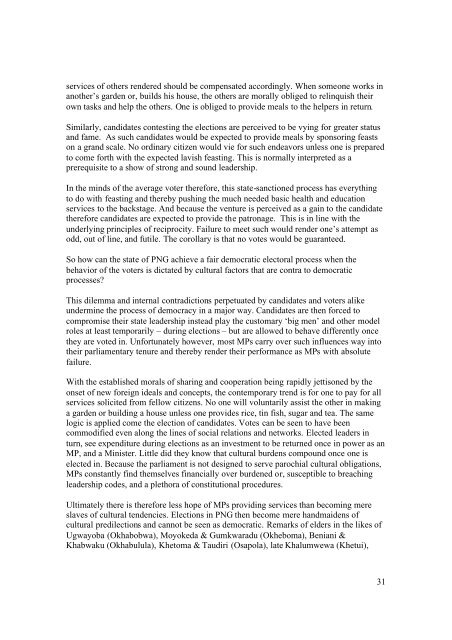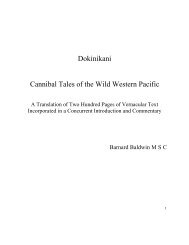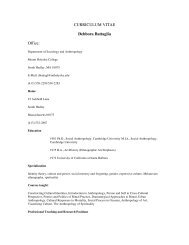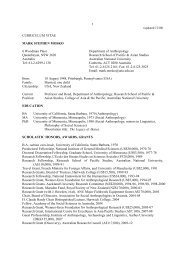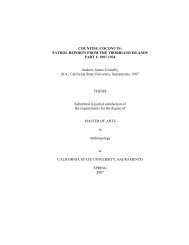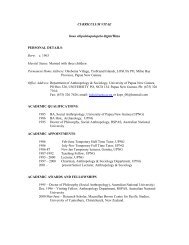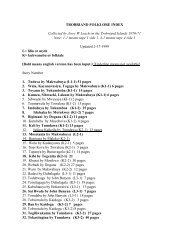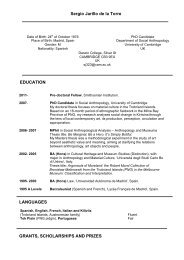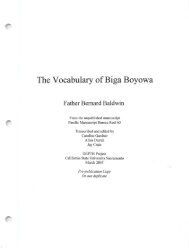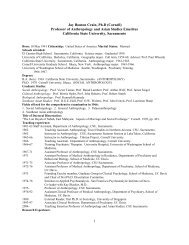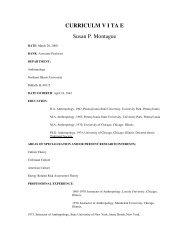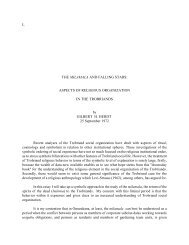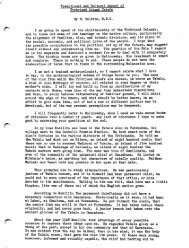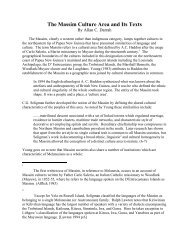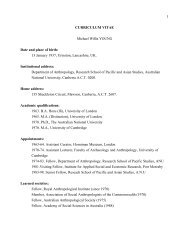Download a PDF of this paper - Trobriand Islands
Download a PDF of this paper - Trobriand Islands
Download a PDF of this paper - Trobriand Islands
You also want an ePaper? Increase the reach of your titles
YUMPU automatically turns print PDFs into web optimized ePapers that Google loves.
services <strong>of</strong> others rendered should be compensated accordingly. When someone works in<br />
another’s garden or, builds his house, the others are morally obliged to relinquish their<br />
own tasks and help the others. One is obliged to provide meals to the helpers in return.<br />
Similarly, candidates contesting the elections are perceived to be vying for greater status<br />
and fame. As such candidates would be expected to provide meals by sponsoring feasts<br />
on a grand scale. No ordinary citizen would vie for such endeavors unless one is prepared<br />
to come forth with the expected lavish feasting. This is normally interpreted as a<br />
prerequisite to a show <strong>of</strong> strong and sound leadership.<br />
In the minds <strong>of</strong> the average voter therefore, <strong>this</strong> state-sanctioned process has everything<br />
to do with feasting and thereby pushing the much needed basic health and education<br />
services to the backstage. And because the venture is perceived as a gain to the candidate<br />
therefore candidates are expected to provide the patronage. This is in line with the<br />
underlying principles <strong>of</strong> reciprocity. Failure to meet such would render one’s attempt as<br />
odd, out <strong>of</strong> line, and futile. The corollary is that no votes would be guaranteed.<br />
So how can the state <strong>of</strong> PNG achieve a fair democratic electoral process when the<br />
behavior <strong>of</strong> the voters is dictated by cultural factors that are contra to democratic<br />
processes?<br />
This dilemma and internal contradictions perpetuated by candidates and voters alike<br />
undermine the process <strong>of</strong> democracy in a major way. Candidates are then forced to<br />
compromise their state leadership instead play the customary ‘big men’ and other model<br />
roles at least temporarily – during elections – but are allowed to behave differently once<br />
they are voted in. Unfortunately however, most MPs carry over such influences way into<br />
their parliamentary tenure and thereby render their performance as MPs with absolute<br />
failure.<br />
With the established morals <strong>of</strong> sharing and cooperation being rapidly jettisoned by the<br />
onset <strong>of</strong> new foreign ideals and concepts, the contemporary trend is for one to pay for all<br />
services solicited from fellow citizens. No one will voluntarily assist the other in making<br />
a garden or building a house unless one provides rice, tin fish, sugar and tea. The same<br />
logic is applied come the election <strong>of</strong> candidates. Votes can be seen to have been<br />
commodified even along the lines <strong>of</strong> social relations and networks. Elected leaders in<br />
turn, see expenditure during elections as an investment to be returned once in power as an<br />
MP, and a Minister. Little did they know that cultural burdens compound once one is<br />
elected in. Because the parliament is not designed to serve parochial cultural obligations,<br />
MPs constantly find themselves financially over burdened or, susceptible to breaching<br />
leadership codes, and a plethora <strong>of</strong> constitutional procedures.<br />
Ultimately there is therefore less hope <strong>of</strong> MPs providing services than becoming mere<br />
slaves <strong>of</strong> cultural tendencies. Elections in PNG then become mere handmaidens <strong>of</strong><br />
cultural predilections and cannot be seen as democratic. Remarks <strong>of</strong> elders in the likes <strong>of</strong><br />
Ugwayoba (Okhabobwa), Moyokeda & Gumkwaradu (Okheboma), Beniani &<br />
Khabwaku (Okhabulula), Khetoma & Taudiri (Osapola), late Khalumwewa (Khetui),<br />
31


